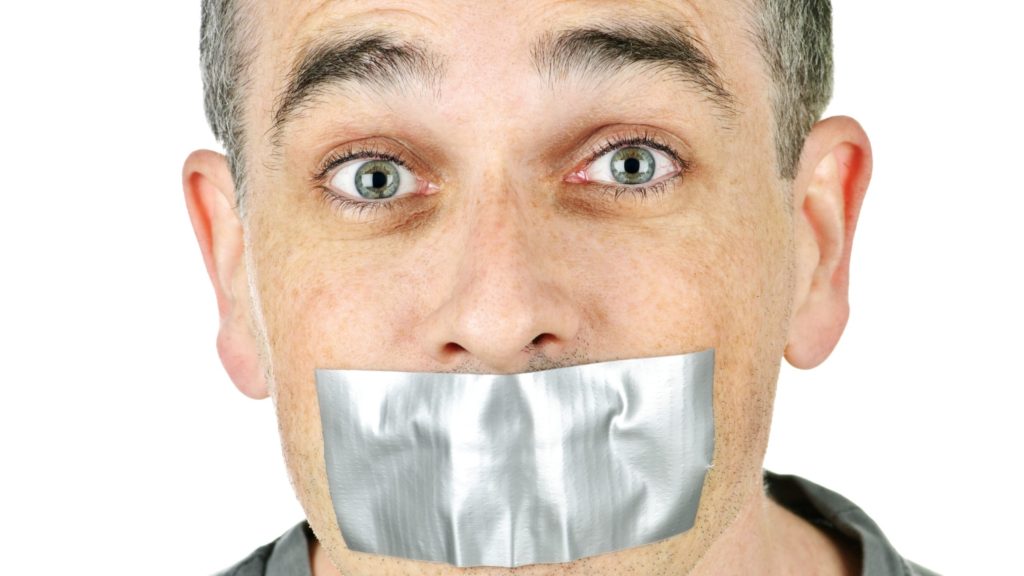“No Comment.”
Have you ever wished you had simply said, “No comment”?
Are you being silenced for fear of backlash?
Michael Toebe, the editor of Communication Intelligence Magazine, recently interviewed me for commentary about the rise of online backlash and “cancellations” in THIS article featuring the story of professional golfer, Graeme McDowell, who experienced tremendous backlash because of his explanation about why he was playing for Saudi Arabia.
Below is the excerpt from my interview:
At times, humans can be remorselessly offensive and yet other times, they can have little to no bad intent and still receive a reaction that is overwhelmingly negative, obnoxious and shameful.
Consider someone who spoke respectfully about the reality of his career and ethically making money, who receives a lot of nastiness, leading him to believe and respond, “I just wish I had said nothing.”
What does this say about society?
Diversity is a desirable goal for many things, but lately, not so much so for the diversity of thought or speech. Although freedom of speech is a cherished value, protected by the First Amendment of the U.S. Constitution, many feel silenced.
It seems that groupthink has led to a form of vigilante justice that shames, ostracizes, or “cancels” people who voice opinions or ideas outside of the majority’s norm, or the norm of a vocal minority.
Looking for targets to attack and causing pain in people’s professional or personal lives over what they say may be justified, or it might just be bullying someone into silence. Bullying people into silence leads to an oppressive and polarizing society.
Should death wishes or threats, and other online abuse and hatred ever be the reaction to upset? Are we evolving or devolving as society?
Do we wish to scare people into not communicating any thoughts, even if the communication is not ill intended?
Social media has made it easier for people to spew hatred and online abuse. People often say things online that they might never say to someone’s face. This is known as the online disinhibition effect, which can become toxic.
Toxic content gets attention, and what gets attention gets repeated, often with additional comments from people who jump on the bandwagon to heap shame and abuse on a post or statement that was never ill-intended.
Even if you think the person is wrong, you can disagree without being disagreeable.
You can speak up and object using statements such as, “I don’t appreciate that comment,” or, “Did you realize that saying that sounds racist?”
Death threats are never appropriate.
As for making honest mistakes in our speech that invite blowback, what can we do to lessen the likelihood that we communicate something verbally or in writing that we believe to be respectful, yet is received as highly offensive and leads to us having to play defense for survival against an onslaught of public criticism?
Too few people think before they speak or post.
Bernard Meltzer, who hosted a radio advice show in the U.S. from 1967 to the mid-1990s, said, “Before you speak, ask yourself if what you are going to say is true, is kind, is necessary, is helpful. If the answer is no, maybe what you are about to say should be left unsaid.”
But, even if you pause to consider your words, you may still say something that others perceive as highly offensive. Or perhaps you are called out on a microaggression. Unfortunately, no one has yet invented a time machine to allow us to go back in time and change our words and actions.
However, you can acknowledge the hurt without making excuses and then apologize for the offense without blaming the other person. Phrases such as, “I’m sorry you feel that way,” puts the blame on others. Instead, say something like, “I’m sorry I offended you,” or “I apologize that my words hurt you. I will choose my words more carefully in the future.”
Windingland has one more recommendation, one that isn’t usually considered yet can prove helpful.
Beware of unconscious bias. You can proactively reduce the likelihood of inadvertently offending by realizing that you may have unconscious bias.
You may not be aware of the stereotypes you hold, some of which may stem from your culture or childhood. Try taking one or more implicit bias tests to gain awareness of your biases. Read up on biased terminology to eliminate bias from your language.

